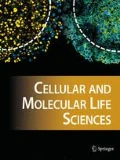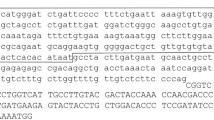Abstract.
T cell activation is enhanced by the costimulatory interaction of B7 on antigen-presenting cells and CD28 on T cells, resulting in long-term T cell proliferation, differentiation and production of large amounts of cytokines, such as interleukin (IL)-2. CTLA-4 is a co-stimulation receptor that shares 31% homology with CD28 and binds B7 family members with higher affinity. CTLA-4 is transiently expressed intracellularly and on the cell surface following activation of T cells. We have studied the kinetics of CTLA-4 expression and the effects of dexamethasone on CTLA-4 expression during T cell activation in cultures of mouse spleen cells stimulated by a mixture of immobilized anti-CD3 and anti-CD28 monoclonal antibodies (anti-CD3/CD28 mAb) or concanavalin A (ConA). CTLA-4 expression peaked on day 2 and returned to background levels after 7 days. Dexamethasone was found to potentiate CTLA-4 expression in a dose-dependent manner with an EC50 effective concentration 50%) of about 10−8 M. In contrast, other immunosuppressive agents, such as rapamycin or cyclosporin A had no or an inhibitory effect on CTLA-4 expression, respectively. Dexamethasone also stimulated CD28 expression, but inhibited IL-2R expression during anti-CD3/CD28 mAb-induced mouse splenic T cell activation. Western blot analyses of lysates of activated mouse T cells showed that dexamethasone increased CTLA-4 protein levels twofold during anti-CD3/CD28 mAb-induced activation. Dexamethasone also enhanced CTLA-4 messenger RNA twofold as quantified by ribonuclease protection assay. The effects of dexamethasone on CTLA-4 expression were glucocorticoid-specific and completely inhibited by the glucocorticoid receptor antagonist mifepristone (RU486), indicating that the effect of dexamethasone on CTLA-4 expression is mediated through the glucocorticoid receptor. In conclusion, the immunosuppressive agent dexamethasone actually stimulates CTLA-4 expression, which is involved in downregulation of T cell activation.
Similar content being viewed by others
Author information
Authors and Affiliations
Additional information
Received 19 May 1999; received after revision 13 July 1999; accepted 13 July 1999
Rights and permissions
About this article
Cite this article
Xia, M., Gasser, J. & Feige, U. Dexamethasone enhances CTLA-4 expression during T cell activation. CMLS, Cell. Mol. Life Sci. 55, 1649–1656 (1999). https://doi.org/10.1007/s000180050403
Issue Date:
DOI: https://doi.org/10.1007/s000180050403



